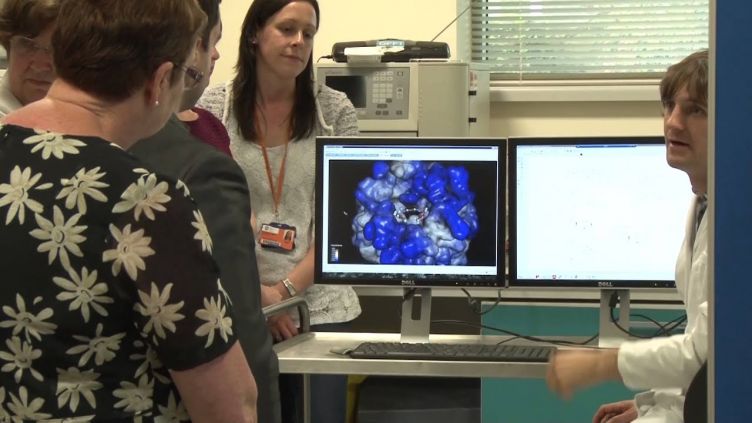Our vision
The Sheffield Institute for Translational Neuroscience (SITraN) is an essential development in the fight against motor neurone disease and other common neurodegenerative disorders including Parkinson's and dementia, as well as stroke and multiple sclerosis.
Our vision
Our vision for SITraN is to grow as an international centre of excellence for basic through to applied research in neurological diseases to complement the landscape of academic research groups, government and charitable research funding bodies the pharmaceutical industry and the healthcare sector.
As yet, no single institution anywhere in the world has developed the necessary critical mass and facilities to exploit the potential of modern neuroscience, the 'post-genome' era, and exciting developments in biomedical therapeutics with a specific focus on this devastating group of illnesses.
Centres of excellence for neurodegeneration research across the globe have achieved considerable progress, but none are effectively poised to develop these advances to the full.
SITraN brings a coordinated approach to the development and clinical trialling of new therapies based on rational targets of proven preclinical effectiveness.
Our potential
SITraN has the potential to bring new treatments and new hope to patients and carers in the UK and worldwide, by significantly accelerating the pace of therapeutic development using technologies such as experimental modelling of disease, gene therapy and stem cell biology, gene expression profiling and bioinformatics analysis and modelling of the biological processes.
Since its opening by Queen Elizabeth II in 2010, SITraN has grown immensely and developed into a leading global facility which is at the forefront of research and expertise, pioneering new treatments for neurodegenerative diseases and bringing new hope to patients and families across the country.
The £20 million centre houses state-of-the-art laboratories and equipment, including a clinical database of over 2,000 patients and a vital resource of human brain-bank material.
Translational therapy pipeline
We received orphan drug designation status from the European Medicines Agency for M102, identified from our drug screening programmes as a potential therapeutic agent for MND and for the use of SMN1 gene replacement therapy in the childhood form of MND known as Spinal Muscular Atrophy (SMA). We are now developing M102 for a first-in-man clinical trial. Trialled in the USA, Zolgensma SMN1 gene replacement therapy became a life-changing treatment for SMA commissioned at 4 NHS Trusts including Sheffield Children’s Hospital.
We pioneered SOD1 gene silencing therapy for SOD1-MND preclinically and were the sole UK site invited to deliver Biogen’s phase 1 evaluation of Tofersen for SOD1 gene silencing. Tofersen is currently fast-tracked for FDA review for the treatment of the 2% of MND cases caused by a mutation in the SOD1 gene.
We have a pipeline of translational treatment approaches progressing from target identification and optimisation, in vitro screening in our patient-derived cell assays, preclinical testing to early phase clinical trials supported by industrial partnerships and UKRI programmes.
Clinical research programmes
We are conducting clinical trials for neuroprotection in MND and have devised new ways of supporting nutrition and respiratory function in MND. We tackle new measures to treat troublesome symptoms experienced by patients with MND and developed the novel neck support collar, HeadUp to support neck weakness in MND.
We pulled ursodeoxycholic acid (UDCA) through from a hit compound in our drug screening assays to a phase 2 drug repurposing trial for Parkinson’s disease and are a leading centre for clinical trials in multiple sclerosis and stroke rehabilitation.
Clinician-scientists from SITraN have led 250 clinical studies to improve our understanding of disease biology and evaluate new treatments for neurological disease over the past 10 years.

